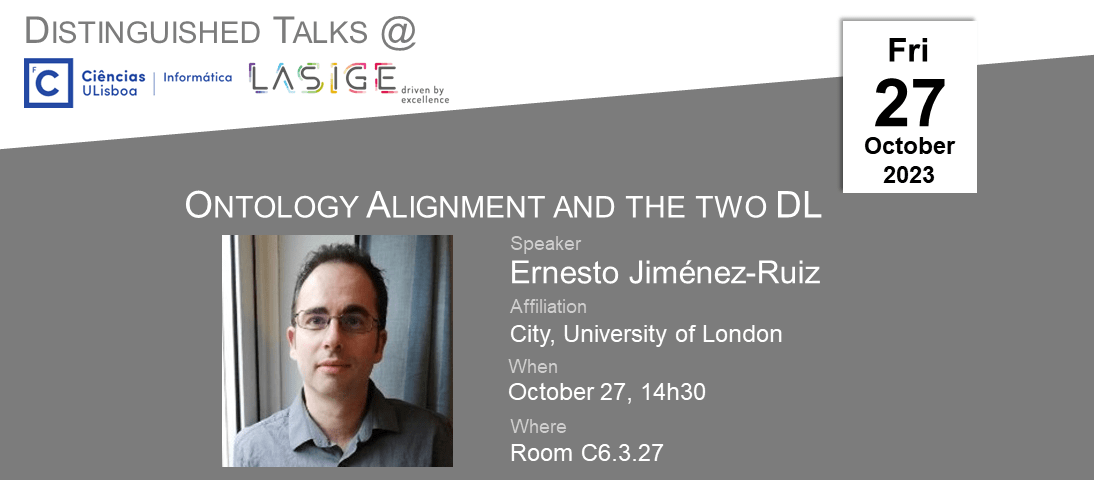Title: Ontology Alignment and the two DL
Speaker: Ernesto Jiménez-Ruiz (City, University of London)
Invited by: Cátia Pesquita (LASIGE, DI/FCUL)
When: October 27, 14h30
Where: 6.3.27
(Coffee break included)
Abstract: The Ontology Matching community has been very active since the first steps of the Semantic Web. The Ontology Alignment Evaluation Initiative (OAEI) has been running annually since 2004. The objective of the OAEI is to perform a systematic evaluation of ontology matching systems to conduct a comparison on the same basis and to enable the reproducibility of the results. The OAEI includes several tracks of different nature and in a diverse set of domains, each of them including one or more matching tasks.
Despite the amazing evaluation and system development efforts around the Ontology Matching community, there are still several challenges that need to be tackled from both the evaluation and system sides: (i) better connection with real-world needs and user involvement/satisfaction, (ii) discovery of mappings beyond atomic subsumption and equivalence, (iii) combination with machine learning methods, and (iv) awareness of the logical compatibility of the ontologies.
In the presentation, I will give an overview of the OAEI and the above challenges with a special focus on challenges (iii) and (iv), i.e., the two DLs (Deep Learning and Description Logics). While Deep Learning techniques are introducing elegant solutions with impressive results, the Ontology Matching community should not forget about the need for computing alignment sets that preserve the logical consistency (possibly with only intended entailments) of the integrated ontology (assuming that the alignment is interpreted as a set of Description Logic axioms).
Short Bio: Ernesto Jiménez-Ruiz is a Lecturer in AI and Senior Tutor for Research at City, University of London affiliated to the Adaptive Computer Systems and Machine Learning group. He chairs the Interest Group on Knowledge Graphs at the Alan Turing Institute, where he previously held a Senior Research Associate position. Before he was at the University of Oxford and at the University of Oslo. Currently, he focuses on the intersection between Knowledge Representation and Machine Learning with a special interest in creating more reliable and robust AI solutions.

